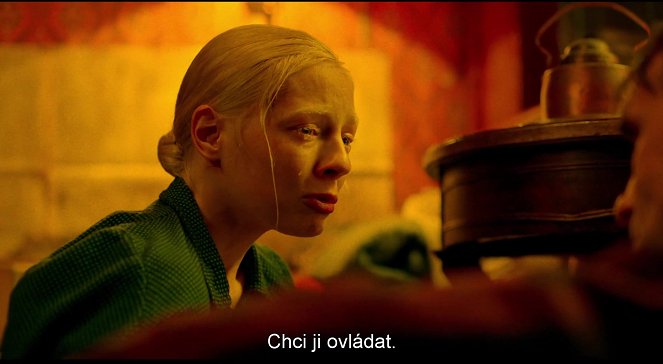Director:
Kantemir BalagovGuión:
Kantemir BalagovCámara:
Kseniya SeredaMúsica:
Evgeniy GalperinReparto:
Viktoriya Miroshnichenko, Vasilisa Perelygina, Timofey Glazkov, Igor Shirokov, Ксения Кутепова, Константин Балакирев, Ольга Драгунова, Polina Kutepova (más)Streaming (1)
Sinopsis(1)
1945, Leningrado. La Segunda Guerra Mundial ha devastado la zona, demoliendo sus edificios y las vidas de sus habitantes. Dos mujeres jóvenes, Iya y Masha, lucharán por reconstruir sus vidas en una ciudad en ruinas. (BTEAM Pictures)
Reseñas (3)
Un tema sobre relaciones complicadas, admirablemente difícil para un cineasta de 28 años. Además, las imágenes captan perfectamente la atmósfera del lugar y la época, así como el estado de ánimo de la historia y sus protagonistas. Aunque este tipo de dramas deprimentes con ambientación histórica en la vieja Rusia me resulta muy lejano, tengo que inclinarme ante Balagov como artista. ¿Qué va a rodar como autor experimentado? P.S.: Las actuaciones de ambas actrices son brillantes. Aunque la cuestión es hasta que punto actuaron. Al día siguiente, en la calle, mientras caminaba rápidamente, levanté un momento la vista del móvil y por un segundo me encontré con la mirada cercana de la Miroshnichenko (la actriz del complicadísimo personaje principal). Era exactamente la misma mirada de la película, la reacción a una persona que entraba en su zona de confort. Me dio escalofríos. [Cannes]
()
This Russian post-war drama about physical and mental wounds and how those wounds can set off another cycle of pain is both a welcome and necessary departure from the bombastic Russian propaganda of war epics. Furthermore, it also stands on its own as a depressing drama with claustrophobically vented emotions. A separate chapter presents the precise, masterful craftsmanship, from the dramaturgy of the colour palette and interiors through the excellent camera work to outstanding acting performances. The consistently implemented form can to some extent draw attention away from the core of the film, which is the weight of guilt and the futile attachment to a vision of happiness.
()
The setting in post-war Leningrad is merely a backdrop, as the story of Beanpole is actually universal, and given that the film almost exclusively tells it through the characters rather than the setting it champions, it's actually a bit misleading. The overuse of long close-ups of characters staring at each other, looking for answers or at least relief in each other's eyes, can ultimately degrade the power of this mode of expression because, as young sensitive directors will hopefully learn one day, a facial close-up is a terribly important and powerful type of shot that needs to find its place in a space and time that often no one has built here. It goes from a close-up in one space to a close-up in another space. While the cinematography and color work are occasionally impressive in the way they forgo the proffered grayness of the post-war big city and splash pastel colors in the promise of a gradual return to better times in the illustrations of Russian storybooks, it's ultimately useless when the film for all practical purposes forgets to work with that setup in the end. It's a shame Alexei German didn't get to make something from this era.
()

